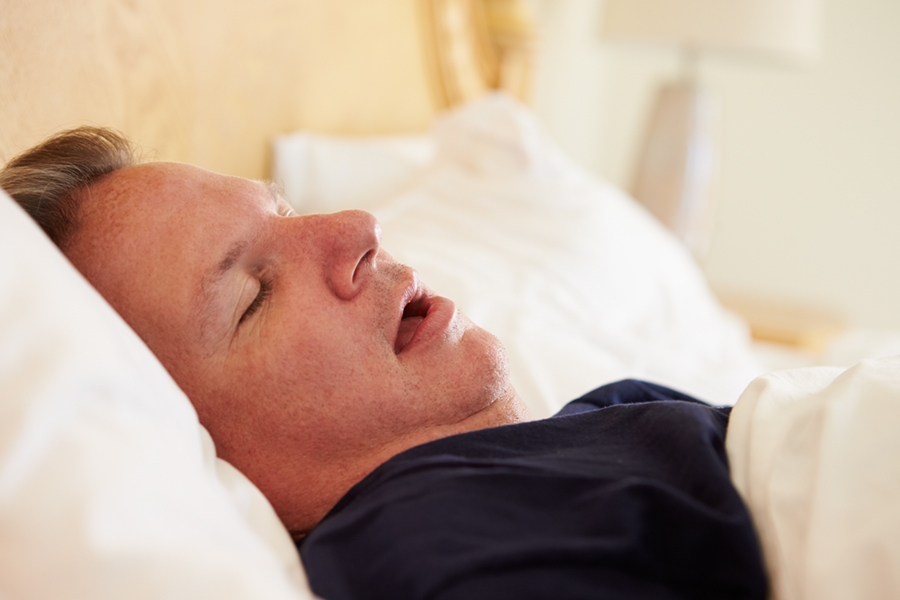Do you feel like you never get a great night’s rest?

A sleep disorder is a medical issue relating to patterns of sleep and waking. There are many types of sleep disorders. Some have little effect on your general health, but there are sleep disorders that can have far reaching consequences for your physical, social, emotional, economic, and mental well-being.
Surprising Sleep Disorder Statistics 1
- 50 to 70 million US adults have a sleep disorder
- 37.9% reported unintentionally falling asleep during the day at least once in the preceding month.
- 4.7% reported nodding off or falling asleep while driving at least once in the preceding month.
- Drowsy driving is responsible for 1,550 fatalities and 40,000 nonfatal injuries annually in the United States.
See if any of these sleep disorder symptoms apply to you
- Waking in the morning without feeling rested
- Morning headaches
- Excessive daytime sleepiness
- Recent, unexplained weight gain
- Change in your level of attention, concentration, or memory
- Fatigue, lack of energy
- Decreasing quality of life
- Depression
- Awaking at night feeling confused
- Snoring
- Observed pauses in breathing during sleep
What about snoring?

People who snore make a noisy, vibrating, rattling sound while they breathe during sleep. You may not even be aware that you snore but ask your bed partner. They can tell you!
- 48% of US adults report snoring 1
- 45% of normal adults snore at least occasionally 2
- 25% of normal adults are habitual snorers 2
Snoring is a common condition that can affect anyone, although it does occur more often in men. Snoring tends to get worse as you age, and it is also more common if you are overweight. If you are a habitual snorer, you are compromising your own sleep quality and health as well as disrupting the sleep patterns of those close to you.
Snoring can lead to serious health consequences
Frequent snoring can make you feel fatigued, drowsy and irritable. Snoring may be an indication of obstructed breathing and should not be taken lightly. If you snore nightly, you can be at risk for health problems that include high blood pressure and increased risk of heart attack and stroke.
Snoring may also be associated with another sleep disorder called obstructive sleep apnea (OSA) which disrupts breathing while you sleep. In addition to compromising your rest at night, sleep apnea can significantly increase your chances of serious health problems.
What is sleep apnea?
Sleep Apnea is a sleep disorder that results in repetitive pauses in breathing during sleep. Pauses can occur several times an hour and last for more than 10 seconds. During the pause, your blood-oxygen levels decrease, and the brain signals you to wake up, which may happen suddenly accompanied by your loud gasping and choking.
This constant interruption in sleep results in poor quality sleep and excessive daytime sleepiness.
Sleep apnea is usually a chronic condition and is often associated with snoring. Most people have sleep apnea for years before it is diagnosed.
Partners of those suffering with sleep apnea also end up with poor quality sleep because of “Spousal Arousal Syndrome.” Their rest is interrupted by the apnea events of their bed partner as many as 21 times an hour. It is estimated that they lose about one hour of sleep every night. 3
Facts You Should Know About Sleep Apnea
- 25 million U.S. adults have obstructive sleep apnea 1
- 20 to 40% of the adult population that are snorers may have sleep apnea 3
- 2 to 4% of all Americans have undiagnosed sleep apnea. This translates into approximately 1 out of every 50 individuals. 4
The lack of oxygen to your brain during sleep apnea can have serious, long-term health consequences. Sleep apnea can cause weight gain, memory problems, headaches, depression, impotence, increased risk of diabetes and high blood pressure.
Sleep apnea makes you 3
- four times as likely to have a stroke
- three times more likely to have heart disease
Why is diagnosing sleep disorders important?
There are many good reasons for you to seek treatment for sleep disorders. Protecting your health and quality of life are at the top of the list, but other significant reasons include restoring your sleep quality, your mood, and your day and nighttime energy levels.
If you suspect you might be suffering from snoring or sleep apnea, we can set up a home sleep test to help identify your problem and find the right treatment.
Contact us to improve your ability to sleep well and enjoy more of life!
References
- https://www.sleepfoundation.org/sleep-topics
- https://www.entnet.org/content/snoring-and-sleep-apnea
- https://www.sleepdisordersguide.com/article/basics/snoring-statistics-statistics-related-to-snoring-problems
- https://www.sleepdisordersguide.com/article/sleep-disorders/sleep-apnea-statistics-the-statistics-of-sleep-apnea


